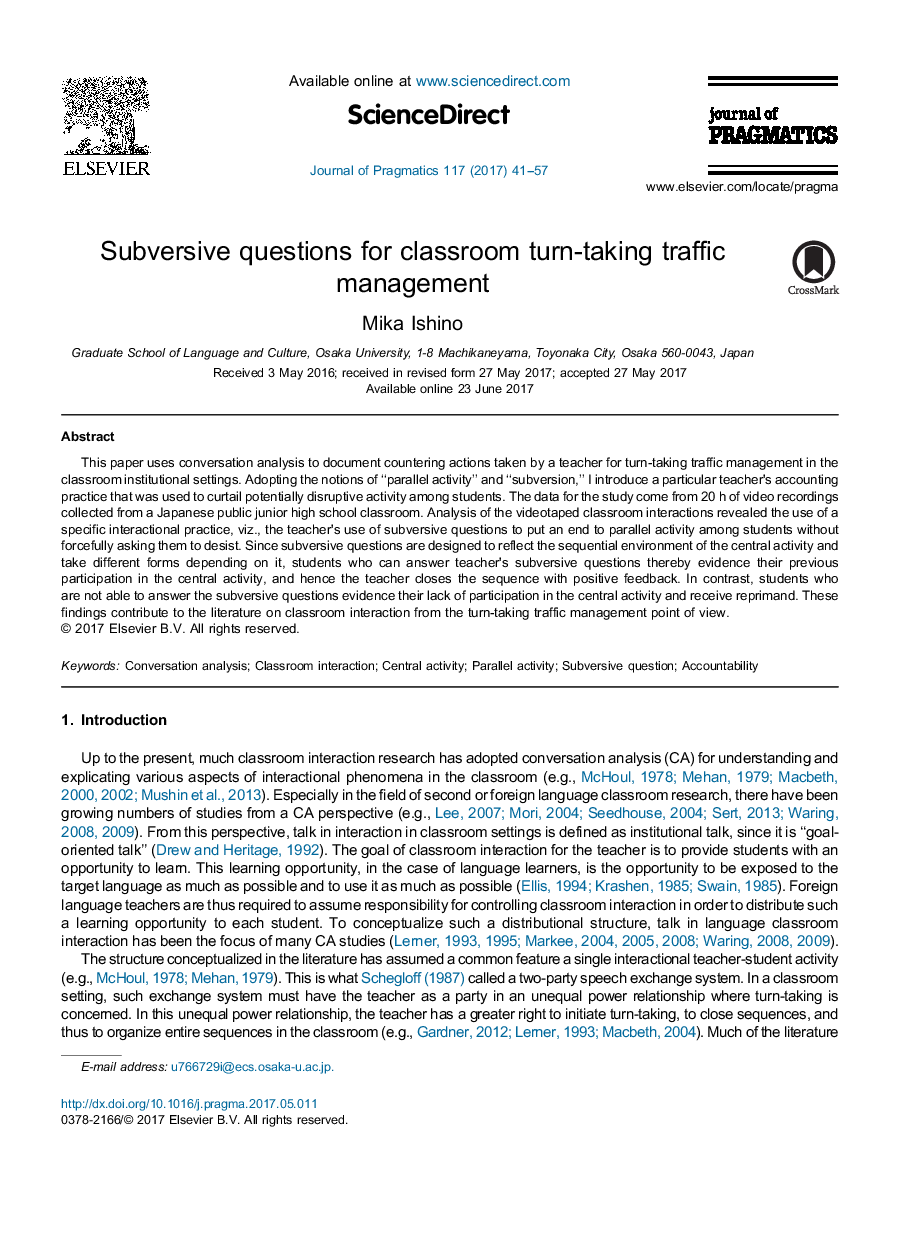| کد مقاله | کد نشریه | سال انتشار | مقاله انگلیسی | نسخه تمام متن |
|---|---|---|---|---|
| 5042653 | 1474683 | 2017 | 17 صفحه PDF | دانلود رایگان |
- The teacher countered the students' activity with subversive questions.
- The subversive question is a part of accounting practice for the teacher.
- The subversive question is used for a classroom turn-taking traffic management.
This paper uses conversation analysis to document countering actions taken by a teacher for turn-taking traffic management in the classroom institutional settings. Adopting the notions of “parallel activity” and “subversion,” I introduce a particular teacher's accounting practice that was used to curtail potentially disruptive activity among students. The data for the study come from 20Â h of video recordings collected from a Japanese public junior high school classroom. Analysis of the videotaped classroom interactions revealed the use of a specific interactional practice, viz., the teacher's use of subversive questions to put an end to parallel activity among students without forcefully asking them to desist. Since subversive questions are designed to reflect the sequential environment of the central activity and take different forms depending on it, students who can answer teacher's subversive questions thereby evidence their previous participation in the central activity, and hence the teacher closes the sequence with positive feedback. In contrast, students who are not able to answer the subversive questions evidence their lack of participation in the central activity and receive reprimand. These findings contribute to the literature on classroom interaction from the turn-taking traffic management point of view.
Journal: Journal of Pragmatics - Volume 117, August 2017, Pages 41-57
